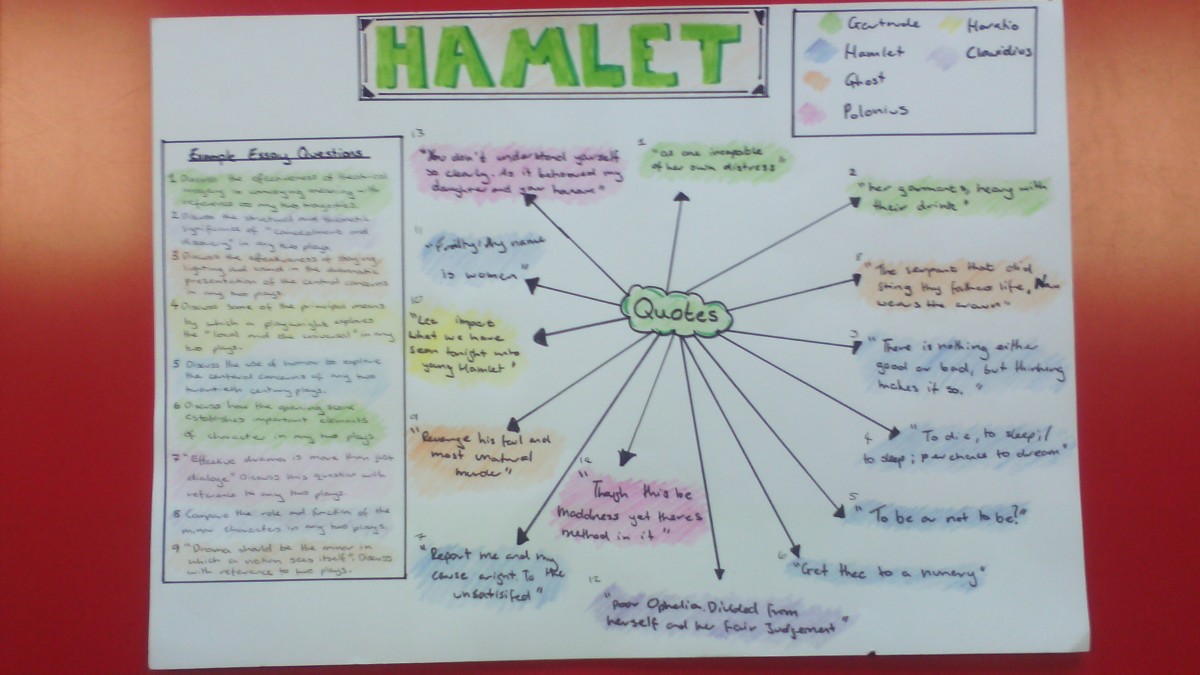Choose a novel with a character who you find fascinating. With reference to the text show how the writer made the character fascinating.
William Golding’s The Lord of the Flies is a novel in which Jack is a fascinating character. In the book a group of boys are stranded on a desert island and must work out how to survive. Golding makes Jack a fascinating character as he makes him change from a darling little boy into a terrifying and reckless young man. We can explore how this change takes place.
At the start of the book Jack is clearly still confined by society’s rules and still wants to be seen as good. We know this as in the scene where he catches a pig he struggles to kill it and we’re told ““he hadn’t because of the enormity of the knife descending and cutting into living flesh”. Here, the word choice of ‘enormity’ tells us that Jack finds killing the pig a big deal, he struggles to murder a living thing as he’s never done this before. The description of the knife ‘descending’ reinforces this as even though the knife is traveling a short distance to Jack it feels like an eternity as he tries to commit a big act of killing. The words ‘living flesh’ shows Jack still empathises with the pig and doesn’t want to kill it. At this point it is clear Jack still wants to follow normal rules and thinks that hurting things is wrong.
Jack begins to change slowly and develops a crazy and violent side. We see this when his hunting job starts to take over his mind and we are told Jack had a “compulsion to track down and kill things that was swallowing him up”. The word ‘compulsion’ suggests that this feeling is not something Jack has any control over; it is almost instinctive for him or a crazy addiction. This is reinforced by the idea that this feeling was ‘swallowing’ him up, it was a feeling or thought that was taking over his life and killing a pig became the only thing he could think about. There’s a possibility that Jack became so fixated as he felt like a failure and less masculine for failing to kill the pig in the first place and now wants to kill one to prove he is a man. This makes Jack fascinating as it is difficult to understand how someone could want to kill something, or be so fixated on that, unless they were going crazy in some way.
Jack does finally manage to kill a pig but all this seems to do is make him madder and badder. He leads a group of boys after they kill the pig and starts a war dance around the carcass chanting “Kill the pig, cut her throat, spill the blood”. This is quite a disturbing scene, the boys appear far too young for such ferocious actions. The chant shows how savage they have become under Jack’s instructions. The words ‘cut’ and ‘spill’ are quite visceral and forceful and the boys are acting far more maturely and savagely than we’d expect them to. This makes Jack seem fascinating as he is now convincing the other boys to become savages too.
Jack’s behaviour develops again when he begins to challenge Ralph’s authority on the island. When the boys are discussing who will go up the mountain and find the beast Jack says he will go and yells at Ralph “coming?” This is clearly asked in a challenging and mocking tone. Jack doesn’t believe Ralph will go up the mountain because he is too scared and Jack will be able to prove to the boys that he should be their brave new leader. This is fascinating because we see Jack try to manipulate the situation so he can wrestle control from Ralph and lead the group.
Jack finally gets what he wants and becomes the chief of all the boys. However his control of them is through fear rather than love and we are told he was “the boy who controlled them” which is best seen when he interacts with Roger – “Jack had [Rodger] by the hair and was brandishing a knife”. The word ‘controlled’ suggests that Jack is a massive dictator but the ‘boy’ suggests that his leadership is immature. The scene with Roger is worrying as it shows Jack dominating the other boys through force and threat. This is fascinating as we see Jack reach the worst version of himself all caused by being on an island without rules.
In conclusion, Golding creates a fascinating character in Jack by making his personality develop from a reasonably pleasant boy to one who begins to challenge authority and eventually become the authority on the island. He is a brute force who has been included to show what happens if the rules are taken away. Jack is the little savage in all of us.


